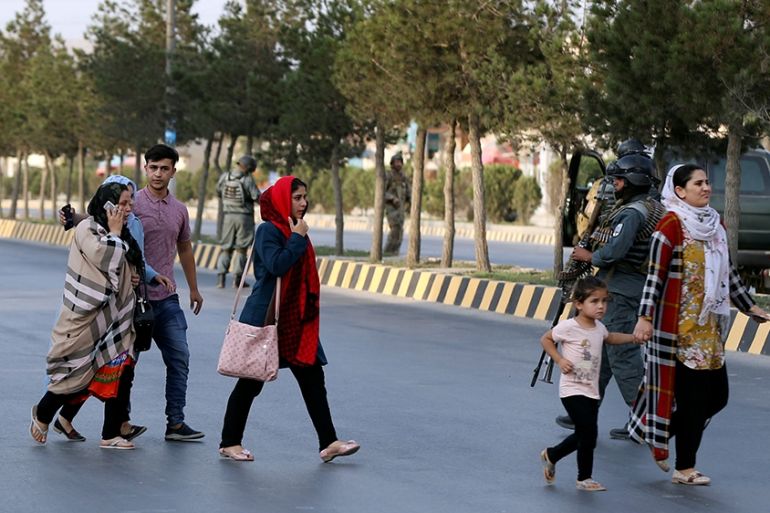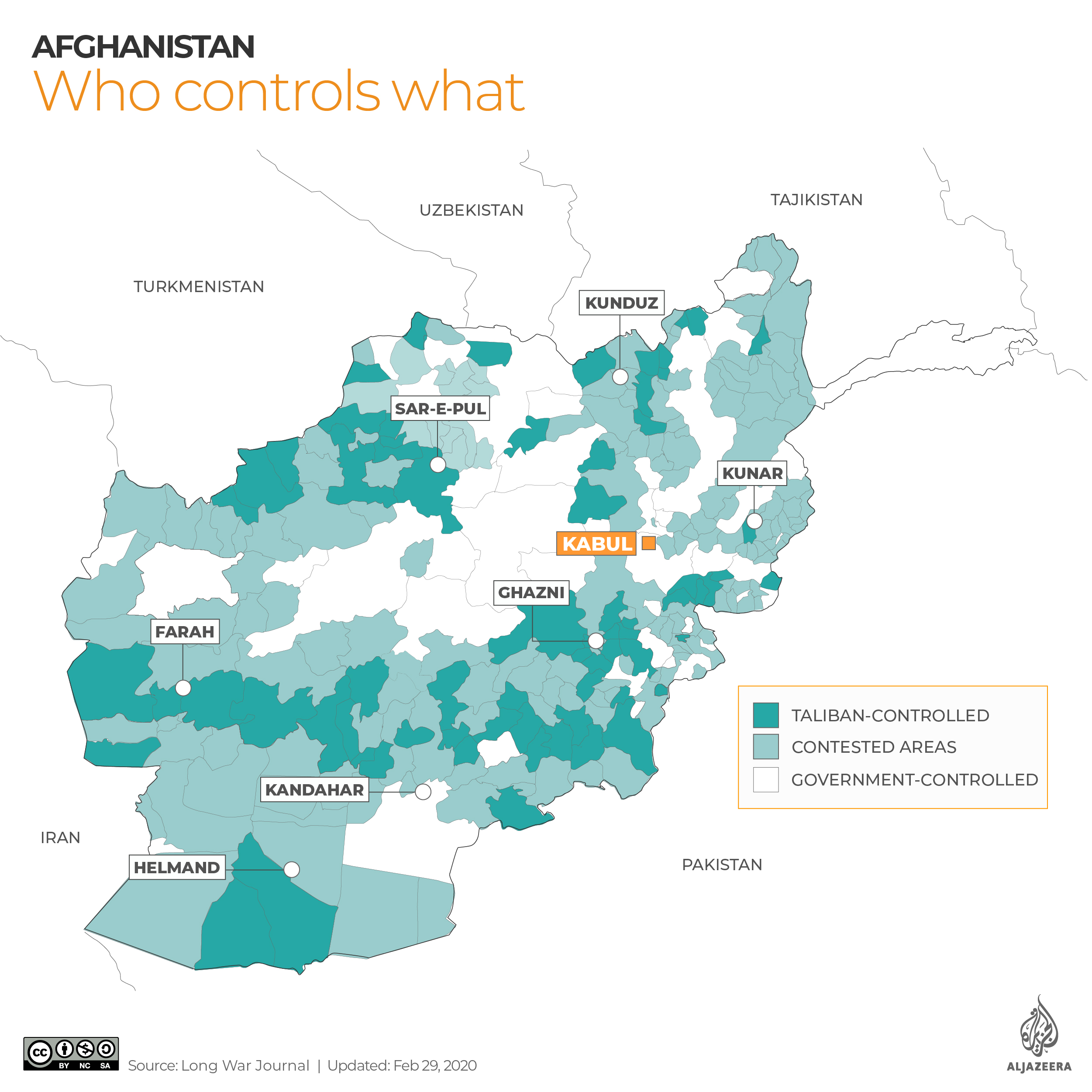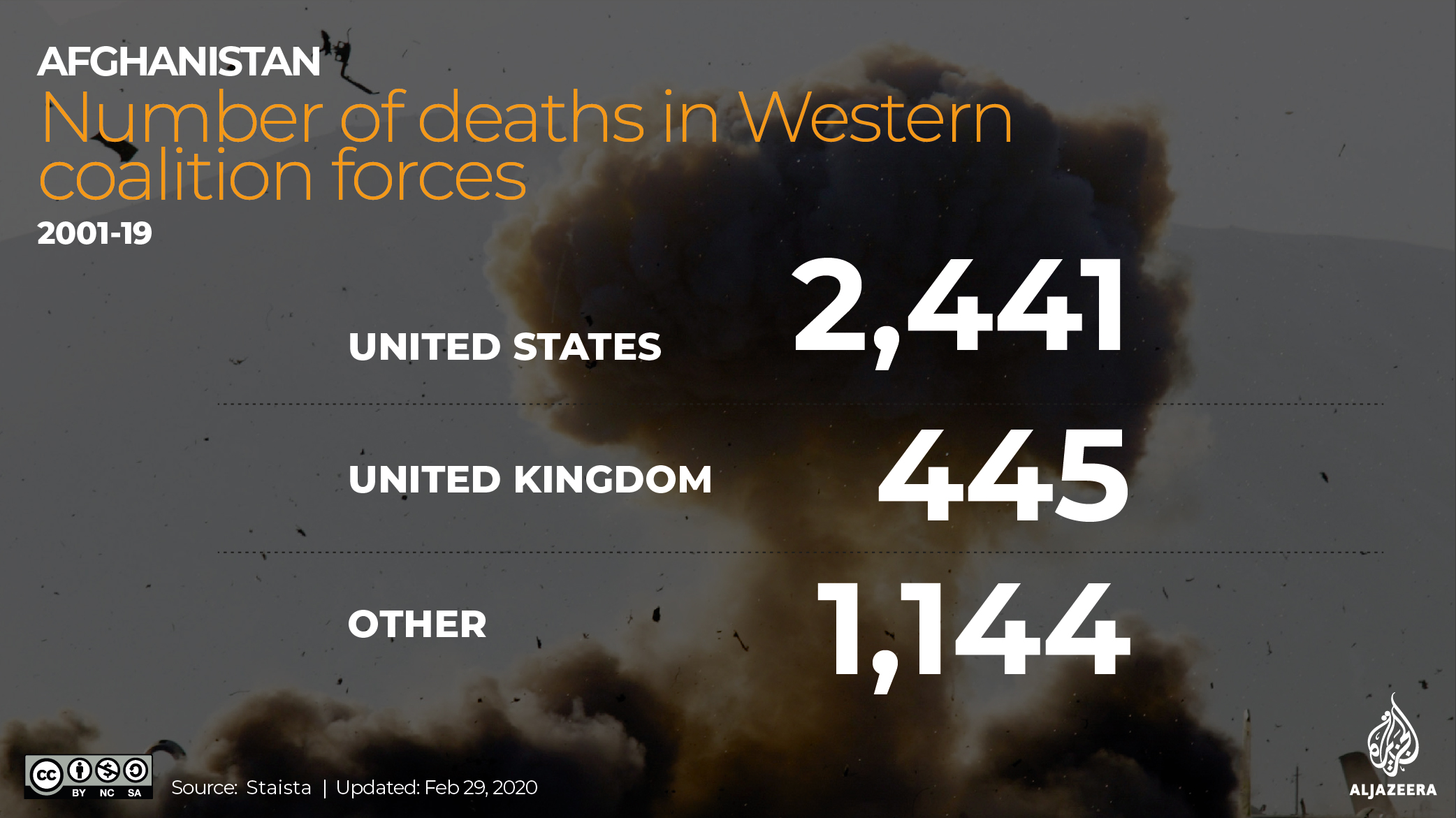‘Hard to trust’: Afghans sceptical of US-Taliban agreement
As the US and the Taliban reach an agreement, questions loom over fate of women’s rights in Afghanistan.

Moments after United States and Taliban negotiators struck a deal to end America’s longest war fought in Afghanistan, Marwa Khan, a Kabul resident, called his mother and said: “They have signed the deal, the war is over.”
“This war has brought so much sorrow. I cry looking at people who lost their loved ones. This is a step forward for us,” Khan told Al Jazeera.
Keep reading
list of 3 itemsFull text: What does the Taliban-US agreement say?
Why 2019 was Afghanistan’s best and worst year since US invasion
On Saturday, the two sides signed a deal in Qatar’s capital, Doha, that outlines the withdrawal of foreign troops from Afghanistan.
It also includes a Taliban guarantee that Afghan soil will not be used by foreign armed groups that would threaten the security of the US and its allies.
The deal promises peace in the country but Maryam Hussaini, 27, is still mourning the loss of her sister, Najiba.
In 2017, the Taliban attacked a bus in Kabul carrying government employees. The attack killed 23 people, mainly workers of the Afghan Ministry of Mines and Petroleum. Among those killed was Najiba.
“I will never forget what the Taliban have done to my family. Peace cannot come overnight by just signing a paper. This peace deal disrespects the one I lost, my sister,” Hussaini told Al Jazeera.
Najiba was 28 when she was killed. She had won a scholarship to study computer science in India and then earned her Master’s degree in Japan.
Upon her return to Afghanistan, she was offered a job at the database unit in Afghanistan’s mining ministry. Almost a year into her job, she was killed.
“The Taliban have not shown regret for killing hundreds of innocent people,” Hussaini said.
In a report released in February, the United Nations Assistance Mission in Afghanistan (UNAMA) said the number of civilian casualties surpassed 100,000 after more than a decade of documenting the impact of war.
“Almost no civilian in Afghanistan has escaped being personally affected in some way by the ongoing violence,” Tadamichi Yamamoto, the UN Special Representative for Afghanistan and UNAMA head said last week.

‘Victory’
US envoy Zalmay Khalilzad and Taliban cofounder and political chief, Abdul Ghani Baradar, shared the stage in Doha against a backdrop that said “Agreement for Bringing Peace to Afghanistan”.
Taliban fighters in Afghanistan celebrated the signing, hailing a “victory” as the Taliban statement released soon after called the deal a “termination of the foreign occupation”.
US Secretary of State Mike Pompeo called on the Taliban to focus its attention on achieving peace in the country.
|
|
“I know there will be a temptation to declare victory, but victory for Afghans will only be achieved when they can live in peace and prosper,” Pompeo said in Doha.
It took 18 months for the deal to reach an agreement on both sides.
US officials and Taliban representatives have long wrangled over the US demand for a ceasefire before the signing of the final peace agreement which took 18 months to reach.
The agreement has four points: A 14-month timeline for withdrawal of all US and NATO troops from Afghanistan; a Taliban guarantee that Afghan soil will not be used as a launchpad that would threaten the security of the US; the launch of intra-Afghan negotiations by March 10; and a permanent and comprehensive ceasefire.
‘Restrictions on women’
When the Taliban was in power in 1996, women were banned from working or studying in the country. After the toppling of the Taliban five years later, three million girls returned to school, according to the Afghan education ministry.
But while the agreement was signed in Doha, women remained apprehensive.
“They committed many mistakes during their time in power. I hope they give women their rights, they were not following Islam either in order to give women their rights,” Bibi Saadat, 55, told Al Jazeera.
In earlier statements, the Taliban has said it was committed to guaranteeing women their rights under Islamic law “in a way that neither their legitimate rights are violated nor their human dignity and Afghan values are threatened”.
At the intra-Afghan talks scheduled for March 10, Afghan leaders and activists, including women, will sit face-to-face with the Taliban and decide the future of the country, including key issues related to women rights, governance and rights of minorities.
But Hussaini remains sceptical and echoes the concerns about the education of women and their empowerment in the country
“If the Taliban come back, Afghan women lose everything: Their 18 years of achievement and even their identities,” she said.
“The Afghan women will be the main victims if the Taliban have not changed their mentality from when they were in power.”
